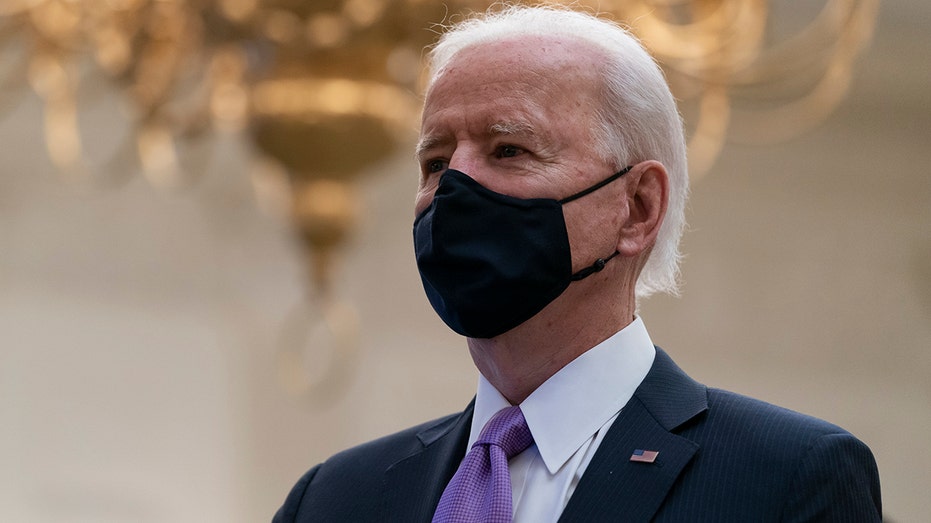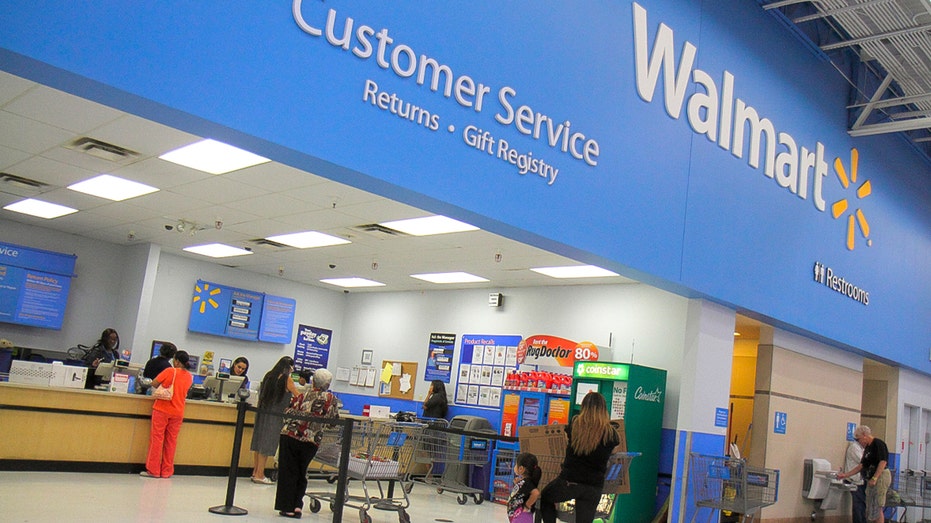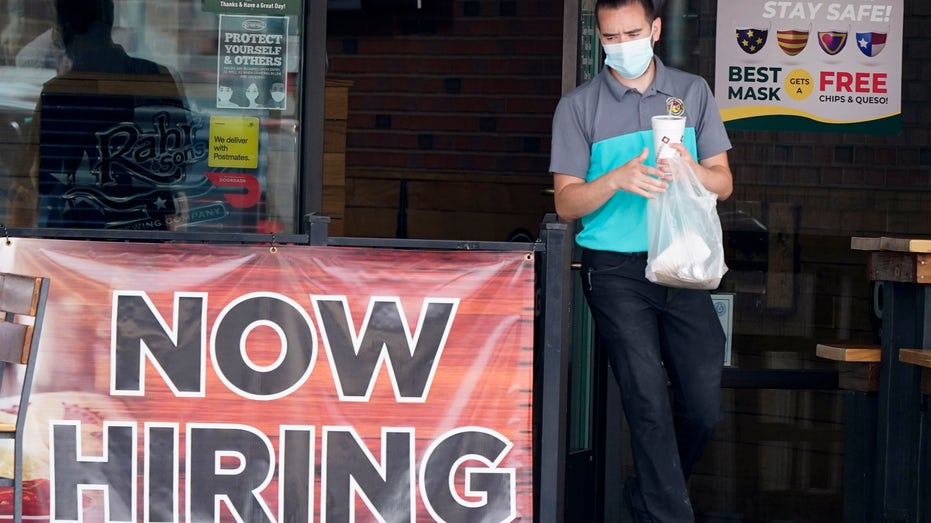Biden wants a $15 minimum wage. Here's what people say it would do to the economy
White House says a raise would help workers; opponents warn of job cuts
President Biden says his proposal to raise the federal minimum wage to $15 an hour will lift many low-wage workers out of poverty, but some businesses and economists warn it could cost jobs as the U.S. recovers from pandemic layoffs.
Mr. Biden endorses a plan to more than double the wage in steps over four years, noting that at $15 an hour, a job could support a family of four and it wouldn’t live in poverty. The president’s advisers also say raising the wage from $7.25 an hour, where it has stood since 2009, would show gratitude to essential workers at grocery stores and warehouses who stayed on the job during the coronavirus pandemic and would boost the economy by allowing low-wage workers to spend more.
Some large national employers have done well during the pandemic, Bharat Ramamurti, deputy director of Mr. Biden’s National Economic Council, said in an interview. “The compensation for their employees hasn’t necessarily reflected that. Raising the minimum wage is one way of giving workers a more fair slice of the revenues that they help generate.”
Several states, including California, Florida and Massachusetts are already on a path to reach a $15 minimum wage in coming years, but Mr. Ramamurti said the floor should apply to areas with a lower cost of living. A federal minimum-wage increase requires congressional approval.
“No matter where you work in America, if you work full time or 40 hours a week, you should not live in poverty,” he said. “A $15 minimum wage accomplishes that.”
Economists are divided on the effects of the $15 minimum wage. Some have looked at the patchwork of state and local increases and found little job loss relative to nearby areas with lower minimums. But others say jobs losses tied to a $15 minimum wage could be more severe, especially in states with a relatively low cost of living.
DEMS UNVEIL $15 MINIMUM WAGE BILL, SAY THEY MAY USE RECONCILIATION TO PASS LEGISLATION
The impact would be felt in more rural states, such as Mississippi, the opponents say. Half of all workers there earned $15 an hour or less in 2019, according to the Labor Department. That includes dishwashers, cashiers, firefighters and construction laborers. Nearly half of workers in Arkansas, West Virginia and Louisiana made less than $15 an hour.
The previous high point for the federal minimum wage was set in 1968, at about $12.25 an hour, when adjusting to 2020 dollars. If the current rate were adjusted for inflation since it was set in 2009, it would be just less than $9 an hour.
Opponents of a large increase say policy makers should be especially concerned with job losses in low-wage industries, such as the leisure and hospitality sector, which shed 3.8 million jobs last year.
More than 37% of workers who earned the federal minimum wage in 2019 were employed in restaurants, hotels and other parts of the hospitality sector, according to the Labor Department. Retail workers accounted for nearly 23% of minimum-wage earners, and education and health employees, including home health aides, represented 14%.

FILE - In this Thursday, Jan. 21, 2021 file photo, President Joe Biden stands during a performance of the national anthem, during a virtual Presidential Inaugural Prayer Service in the State Dinning Room of the White House, in Washington. (AP Photo/A
"It's a potentially catastrophic policy error," Kevin Hassett, former President Donald Trump’s top economic adviser, said of the $15 minimum wage. The pandemic, he said, pushed many small businesses to the brink of bankruptcy, but those restaurants and other firms are holding on, expecting profits later this year when the economy can open up. A minimum-wage increase would cut into those expected profits and cause businesses to close, he said. "It's going to cost a lot of people their jobs."
Mr. Hassett said low-wage workers have been disproportionately harmed by the pandemic, and that the government should support them through direct payments rather than mandating that private firms raise wages.
BIDEN'S $15 MINIMUM WAGE PUSH COULD BE 'DEATH KNELL' FOR SMALL BUSINESSES, JOB GROWTH
The nonpartisan Congressional Budget Office found in a 2019 study that raising the federal minimum wage to $15 an hour by 2025 could cost 1.3 million Americans their jobs. The same study found the higher level could boost the pay of about 27 million workers and lift 1.3 million Americans out of poverty.
Many businesses support increasing the minimum from $7.25 but don’t endorse a $15-an-hour level.
“While we continue to support an increase in the federal minimum wage, we believe that the increase should be thoughtfully designed to reflect regional differences in wage rates and to ensure that the increase does not undermine small business recovery,” said Joshua Bolten, president of Business Roundtable, a lobbying group that represents chief executives of large companies.
The U.S. Chamber of Commerce and Walmart Inc. Chief Executive Doug McMillion have made similar statements. Walmart, the nation’s largest private employer, starts workers at $11 an hour.
Walmart in a statement said its starting-pay rate is “more than 50% higher than the federal minimum wage, which Washington hasn’t changed in more than a decade. We support efforts to raise the minimum wage while we continue to make investments in our associates.”

Walmart Customer Service desk. (Photo by: Jeff Greenberg/Universal Images Group via Getty Images)
Some other large employers, including Amazon.com Inc. and Target Corp. have raised their starting wages to $15 an hour.
Paul Flick, chief executive of Premium Service Brands, said more than doubling the minimum wage would cause franchisees for the brands his Charlottesville, Va., firm, operates—including 360º Painting, Handyman Pro and Maid Right—to raise prices.
BIDEN SPARKS BACKLASH AMONG SOME PROGRESSIVES OVER $1,400 STIMULUS CHECKS IN COVID RELIEF PROPOSAL
“I’m not opposed to an increase, but more than a 100% jump is crippling,” he said. “That can’t be absorbed, so it has to be passed on to the customer…and if they can’t afford to buy the service then that means layoffs.”
While 29 states have raised their minimum wages above the federal floor, worker advocates say a higher mandate is also needed because employees in large cities such as Atlanta, Houston and Philadelphia can be paid as little as $7.25 an hour. Georgia, Texas and Pennsylvania follow the federal rate.
Wanda Lavender, 39 years old, said she earns $12 an hour in Milwaukee, Wis., as an area manager at Popeyes restaurants. She took the position because it offered a raise from the $9-an-hour day-care job she held. Wisconsin is among the states with a $7.25-an-hour minimum.
She works 40 to 60 hours most weeks but said it is still a struggle to pay her rent and electric and phone bills. An increase to $15 an hour would give her more breathing room and allow her to spend more time with her children. Like Ms. Lavender, minimum-wage employees are disproportionately women and Black workers.
“I miss the field trips and the performances and the parent-teacher conferences,” she said. “I can’t take a day off to be with them because otherwise I won’t make my bills.”

A customer wears a face mask as they carry their order past a now hiring sign at an eatery in Richardson, Texas, Wednesday, Sept. 2, 2020. U.S. companies added jobs at a modest pace last month, a private survey found, a sign that while hiring continu
Arindrajit Dube, an economist at the University of Massachusetts-Amherst, found little impact on employment in his study of minimum-wage increases, but he saw clear poverty-fighting benefits.
“Raising the minimum wage is going to lift millions out of poverty, and those families won’t need to rely on government aid,” he said.
GET FOX BUSINESS ON THE GO BY CLICKING HERE
The Economic Policy Institute, a left-leaning think tank, said a $15 minimum wage would lower expenditures on public-assistance programs by between $13.4 billion and $31 billion annually, in the form of fewer tax credits and less nutrition assistance. Those effects are why some Democrats say a minimum-wage increase could advance through a process known as reconciliation, requiring just a simple majority in the Senate.
Going outside those reconciliation procedures would likely prompt a filibuster, which would require 60 votes to overcome. That is unlikely in the closely divided Senate, given widespread Republican opposition to a $15 minimum wage.
CLICK HERE TO READ MORE ON FOX BUSINESS
Jonathan Meer, an economist at Texas A&M University, said a $15 minimum wage will push businesses to use self-checkout kiosks and other technology to replace workers and will encourage companies to pay workers off the books.
“In rural areas of the country, people will still be working, but it won’t be for $15 an hour,” he said. “They’ll be paid under the table and therefore forgo unemployment insurance, workers’ compensation and not accrue Social Security benefits.”




















